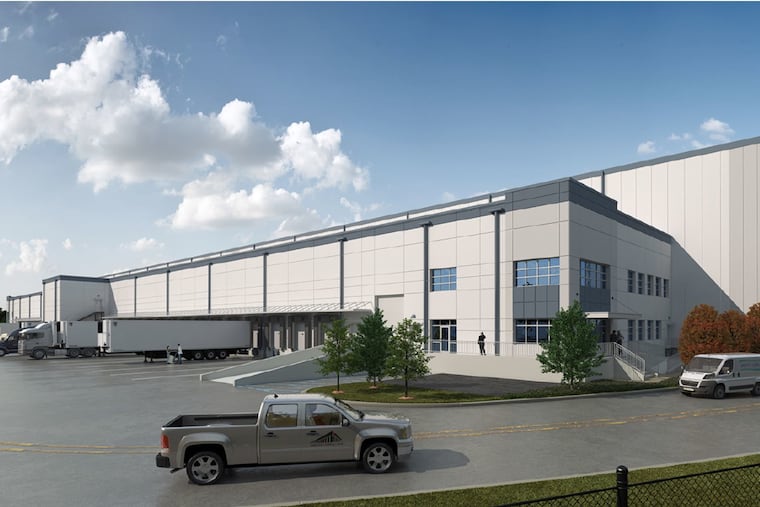Refrigerated cargo building coming to PHL in 2025
A 261,000-square-foot facility will increase the available cold-chain logistics in an underserved area.

A 261,000-square-foot climate-controlled cargo facility is coming to the Philadelphia International Airport. The facility is part of the airport’s $1.2 billion plans to increase cargo operations, which PHL officials say could generate $1 billion a year in regional economic impact.
The new building, built by Bristol Group Inc., a real estate development and investment company, is expected to be completed by 2025 on a 16.8-acre lot on the northeast side of PHL’s property.
Once constructed, the building will store pharmaceutical items, foods, and electronics that require cooler or freezer temperatures.
“Having a state-of-the-art cold storage facility at PHL will make our airport the premier cargo airport in the eastern United States, given our location adjacent to I-95 and close proximity to the Port of Philadelphia,” said Atif Saeed, PHL CEO, in a news release.
The expansion of PHL’s cargo business comes after a 2017 report by the airport showed that a 400-mile radius around the airport was generating $53 billion a year in air cargo activity. PHL was making 9% of that and losing business to other airports in nearby states. Philadelphia hadn’t had the capacity to take on the work, said Jim Tyrrell, PHL’s chief revenue officer, in 2018.
The global cold-storage construction market is expected to grow to $18.6 billion by 2027, according to the Wall Street Journal.
In 2018, the airport acquired 135 acres for cargo activity, and in 2021, it got approval from the Federal Aviation Administration to develop cargo-related facilities and expand the airfield. A 5- to 10-year plan was also announced in 2021 to increase PHL’s cargo operations by adding one million square feet of cargo facilities and creating 28,000 jobs. By 2021, the airport invested $90 million to ready the site of the new cargo operations.
“The addition of this facility stands to benefit the Greater Philadelphia region in many ways, from the billions of dollars generated by cold-storage cargo and pharmaceutical business to the hundreds of jobs created by the construction and operation of the building,” said Saeed this week.
Demand for cold storage specifically increased during the pandemic as consumers changed their spending habits to buy more in bulk as well as more frozen foods. In 2020, the sales volume of cold storage increased 22% year over year, according to the New York Times.
While the number of passengers flying during the pandemic plummeted at PHL, cargo activity increased. In July 2020, passenger traffic was down 72.8% and cargo tonnage was up 5.6% compared to the same month in 2019.